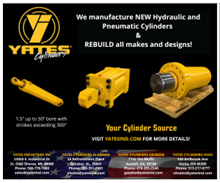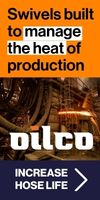ArcelorMittal Ostrava Reduces Dust Emissions to Historical Low
04/08/2013 - In 2012 ArcelorMittal Ostrava cut its dust emissions by another 85 tonnes, thus reducing its environmental footprint to the historical low of 584 tonnes, which is a mere third of what it used to be ten years ago when ArcelorMittal bought the plant.
In 2012 ArcelorMittal Ostrava cut its dust emissions by another 85 tonnes, thus reducing its environmental footprint to the historical low of 584 tonnes, which is a mere third of what it used to be ten years ago when ArcelorMittal bought the plant. The company plans to draw on EU subsidies destined to reduce the impact of industry on the environment, to fund its future investments in this field. The environment-related investments, which are now planned for over CZK 2.6 billion, will reduce dust and NOx emissions and help improve the workplace conditions. De-nitrification of the power plant and de-dusting of sinter plant South represent the largest environmental investments.
Over a period of ten years, ArcelorMittal invested more than four billion Czech crowns in the program of environmental measures. This has helped the company to meet the emission limits required by the Czech laws and the even stricter emission ceilings stipulated by the regional authority of Moravia-Silesia. “The majority of our plants meet even the strictest EU limits based on the ‘best available technique,’ which will become binding from March 2016 onwards, five years ahead of time,” explains Petr Baranek, chief green officer. “If the European Commission approves our projects, we will be making further investments in environmental sphere exceeding CZK 2.6 billion by 2015,” adds Baranek.
The largest portion of investments will go into high-emission operations, sinter plant and blast furnaces. In addition to that, the steelmaker plans to use the European subsidies to de-nitrify three boilers in its power plant. This project will help cut NOx emissions by 808 tonnes annually.
A bag filter at sinter plant South is set to deliver the highest environmental relief — a cut of dust emissions by 94 tonnes annually. Both sinter plants will also see a better working climate. The de-dusting of the cooling belts will also improve the fugitive (secondary) emissions by 198 tonnes a year, and the de-dusting of the coal and ore tipplers will chip in an additional 6.4 tonnes of reduced emissions a year. European subsidies will help with the de-dusting of both blast furnaces – the company is planning to invest in a capacity increase of cast-house de-dusting, which will eliminate 74 tonnes of emissions.
“The European Union has supported a program of environmental measures in the steel industry already twice — in the 1970s and 1990s. Our steel producers are in the position to apply for subsidies for the first time. As their plants are already well compliant, they use the subsidies for investments aimed at reducing emissions beyond the EU requirements, or for investments to reduce those types of emissions that are not even regulated by the EU,” explains Vladimír Toman, member of the Board of Steel Federation. “While the EU distributed over CZK 50 billion in subsidies among 13 countries, Czech steel industry is asking subsidies of CZK 4.7 billion,” he added.
| Investment | Environmental Benefit |
| Lime route dedusting | Reduction of the fugitive dust emissions by 100 tonnes/year in the steel plant |
| Dedusting of wagon tipplers | Reduction of the fugitive dust emissions by a total of 6.4 tonnes/year at both tipplers |
| SPN cooling belts | Reduction of the fugitive dust emissions by 137 tonnes/year in the sinter plant |
| SPS cooling belts | Reduction of the fugitive dust emissions by 61 tonnes/year in the sinter plant |
| Sinter plant South dedusting | Reduction of the dust emissions from the sinter plant by 94 tonnes/year |
| BF2 casthouse dedusting | Reduction of the fugitive duest emissions by 51 tonnes/year in blast furnace 2 |
| BF3 casthouse dedusting | Reduction of the fugitive dust emissions by 23 tonnes/year in blast furnace 3 |
| DeNOx | Reduction of NOx emissions in boilers K8, K9 and K10 of the AMEO power plant |
ArcelorMittal Ostrava a.s. is the largest steelmaker in the Czech Republic and part of the world’s largest steel and mining group ArcelorMittal. It has production capacity of 3 million tonnes of steel annually; about 50% of the output is exported to more than 60 countries worldwide. Together with its subsidiaries it employs more than 7,500 people. In 2012, the average salary earned by its employees was CZK 34,213. ArcelorMittal Ostrava produces iron and steel in compliance with all environmental legislation. It already conforms to the EU best available techniques (BAT) emission limits that will be binding from 2016 onwards. The sole shareholder is ArcelorMittal Holdings A.G.



.jpg?lang=en-US&ext=.jpg)
.gif?width=220&height=200&mediaprotectionhash=374c6b9a31f2b2fbfc7937391034efb46fd57feba997b9ad2ae9a0bd3d48329d&ext=.gif)

.gif?width=100&height=200&mediaprotectionhash=e2d5b15d68f84f22038524be6c58e5268d67b7f44494b544e29a8d53c5b959ba&ext=.gif)
